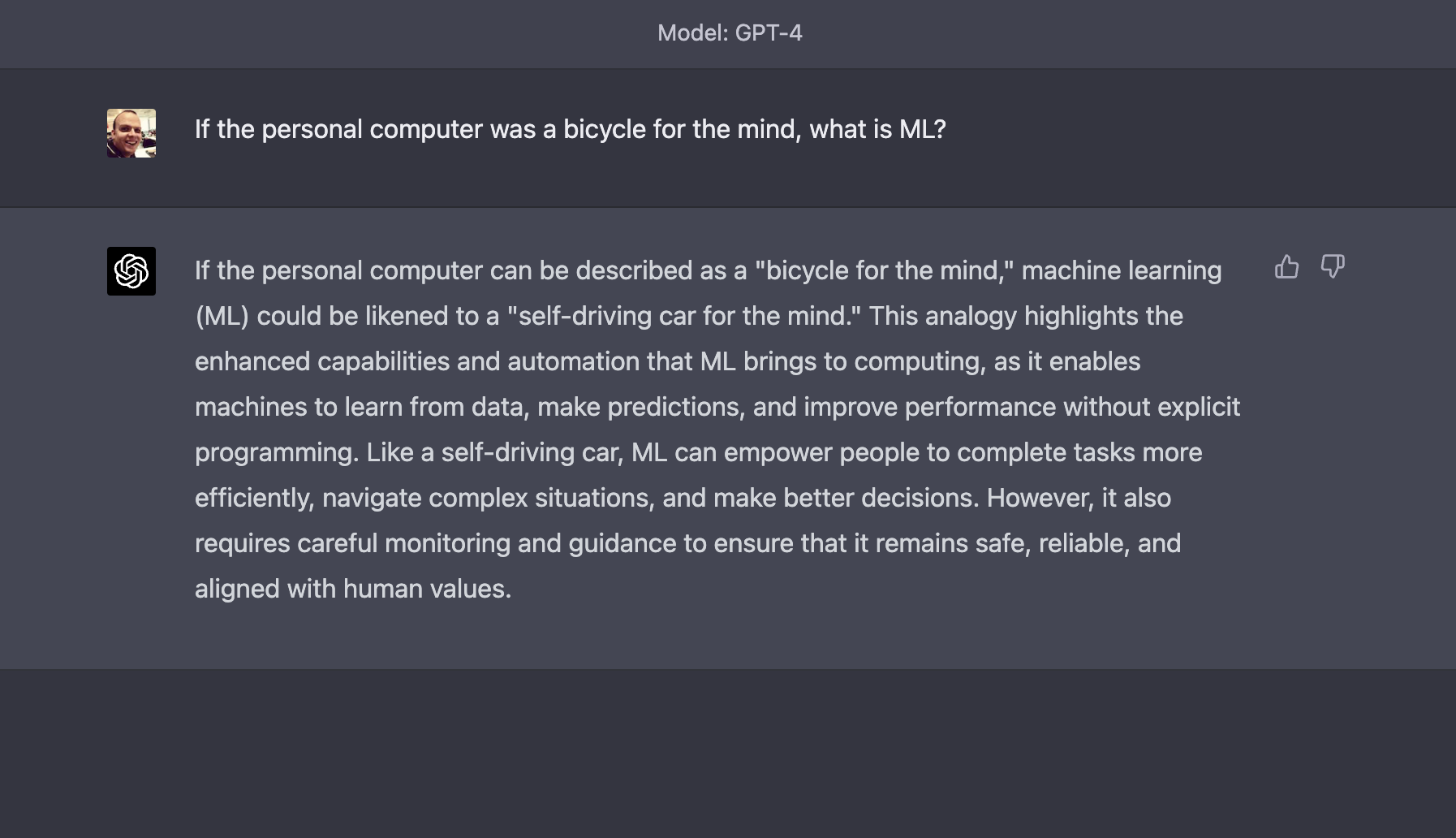I was honoured to be able to present at the "School of Computer Science and Electronic Engineering" last week with a talk called "Aiming for the Future" [pdf].
I had a lot of fun creating this talk where I could go from the earliest computing with the Difference Engine all the way to today and try and talk about the evolutions of computing and possibility at every transition (I tied the transitions to delivery of content/data).
I wanted to try and hit a note that when I was coming out of University in the early 2000's we were able ride on the ascendancy of the Web and students coming out of university today are at the foot of potentially a couple of new waves that today's students can take advantage of.
I placed my bet on ML being the next wave, specifically the Generative aspect as a step change in the way people use computers. I could be totally wrong, but it's an area that I am personally investing a lot of time re-learning (heh - it's almost 20 years since my AI based dissertation) and to me it feels that we are at the start of a significant shift where I am in a lucky position that the web is the best medium to deliver this change.
Interestingly, earlier in the day I had a discussion with Carwyn Edwards and Joseph Mearman made an interesting point about a new potential Industrial Revolution where instead of Mechanising physical labour, we're at a point where mental labour is now Mechanised. I thought it was a such an evocative statement - in the same spirit as a "Bicycle for the mind" 40 years ago. I asked Chat GPT4 something similar the day before and it said:

Heh. Thinking a lot of itself...
I wrote this talk before I had seen what was happening at the University and as the speaker at the event I also got invited to the Student Expo earlier in the day. The Expo was great, it was full of the Final year students projects and it was great to see what the students are up to and they are solving interesting challenges. It was also very interesting to see how many students are applying many different aspects of AI to practical problems (I'd say 1/3rd to a 1/2 of the projects). On one hand there were high-level Music and Lyric generators with Chat GPT; practical developers tools like a Unity plugin with Stable Diffusion; to the very low-level Fibre Optic fault detection with Convolutional Neural Networks. It was great to see the entire spectrum and it was interesting to see how many of the students were focusing on this new area.
The students might have just picked up on the zeitgeist and worked on that, but I think there is something far more fundamental happening given the breadth and the depth of learning. Either way, it was great to see and I left excited for the future.
I lead the Chrome Developer Relations team at Google.
We want people to have the best experience possible on the web without having to install a native app or produce content in a walled garden.
Our team tries to make it easier for developers to build on the web by supporting every Chrome release, creating great content to support developers on web.dev, contributing to MDN, helping to improve browser compatibility, and some of the best developer tools like Lighthouse, Workbox, Squoosh to name just a few.
I love to learn about what you are building, and how I can help with Chrome or Web development in general, so if you want to chat with me directly, please feel free to book a consultation.
I'm trialing a newsletter, you can subscribe below (thank you!)




